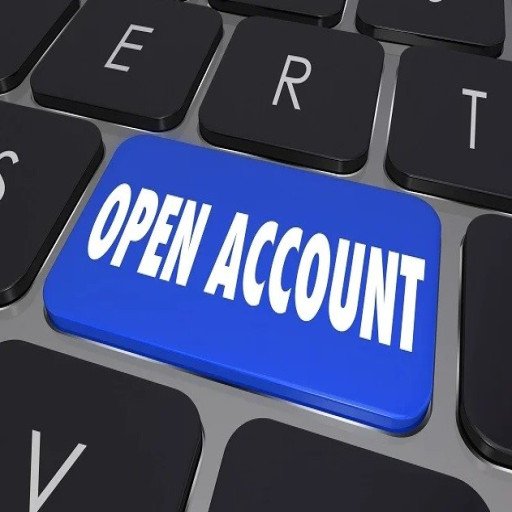
Rafiq,
a young garment worker in Dhaka, receives his monthly salary in cash. On his
way home, he worries about safety—what if someone robs him? Later, when his
mother in the village asks for money, he spends hours in long queues at mobile
counters and pays extra fees. When it’s time to pay electricity bills, he has
to stand in another line. Without a bank account, every simple financial need
becomes a struggle.
This picture is real for many people in Bangladesh who do not have formal banking access. The problems of carrying cash, losing money to fees, or not being able to save securely highlight why opening a bank account is no longer optional—it’s a necessity. Let’s explore how these issues can be solved step by step and understand why you should open bank account Bangladesh today.

Why a Bank Account Matters
A
bank account does more than just store money. It acts as a financial identity.
Without it, you remain excluded from many opportunities—taking a loan to expand
a small business, applying for a debit card, or even receiving a salary
directly from your employer. For example, companies in Dhaka now prefer to pay
salaries through bank transfer. If you do not have an account, you may face
delays or even miss employment opportunities.
A
bank account also ensures safety. Instead of hiding money at home where theft
or fire can wipe it out, banks guarantee protection and insurance. Many banks
in Bangladesh are integrated with digital systems, making payments and
transfers simple. So, the solution to Rafiq’s daily problems starts with a
single decision: to open bank account Bangladesh.
Step 1: Choosing the Right Bank
The
first step is selecting the bank. In Bangladesh, you can choose from
state-owned banks like Janata Bank, Sonali Bank, or private banks like BRAC
Bank, Dutch-Bangla Bank, and Islami Bank. Each has its own specialties. For
example, Dutch-Bangla Bank is popular for mobile banking, while BRAC Bank
provides strong SME support. If your goal is to send money easily to rural
areas, a bank with wide branch coverage may be the best option.
When you choose a bank, check whether it offers online banking, ATM coverage, mobile app facilities, and low charges. This ensures your account is not only secure but also useful in your daily life.
In
Bangladesh, most people start with a savings account. It allows you to deposit,
withdraw, and earn interest. Current accounts are better for businesses as they
support higher transactions without interest. There are also student accounts,
salary accounts, and specialized deposit schemes.
For example, a university student in Dhaka might prefer a student savings account to receive funds from home and pay tuition digitally. On the other hand, a shop owner may need a current account to manage daily transactions. Choosing the right type ensures your account matches your financial needs.
Opening
a bank account in Bangladesh is straightforward if you have the proper
documents. You generally need:
a. National ID card (NID) or Passport
b. Two recent passport-size photographs
c. Proof of address (utility bill or rental agreement)
d. Nominee’s photograph and NID copy
In some banks, your employer or a known account holder may need to introduce you. For example, if Rafiq wants to open an account, his factory HR department can help as an introducer. This step ensures security and prevents misuse of accounts.
Once
you have selected the bank and collected your documents, visit the nearest
branch. Bank officers will guide you through the account opening form. Fill in
details such as name, address, occupation, and nominee information carefully.
At this point, you may also choose digital banking facilities like internet banking, SMS alerts, or mobile app activation. For example, with internet banking, you can pay electricity bills, buy train tickets, or send money to your family without leaving home.
Most
banks in Bangladesh require a small initial deposit to activate the account.
For savings accounts, it may range from 500 to 1,000 taka. Current accounts may
need more. This deposit ensures your account is live and ready for use. Once
activated, you receive a cheque book, debit card, and sometimes an online
banking ID.
For instance, if Rafiq deposits 1,000 taka, he immediately gains access to an ATM card that allows him to withdraw cash anytime, without standing in queues.
Opening
the account is just the beginning. The real benefit comes when you start using
it. Salary transfers, utility bill payments, online shopping, and savings
become smooth. Moreover, a bank account builds your financial history. This
history helps when you apply for loans to buy land, build a house, or expand a
business.
For example, a small business owner in Chittagong who consistently uses his account can later apply for an SME loan. Without that account, his growth remains stuck.
Now,
let’s go back to Rafiq’s situation. After he decides to open bank account
Bangladesh, he no longer carries bundles of cash after payday—his salary
goes directly into his account. He sends money to his mother through online
transfer in seconds, without paying extra fees. Electricity bills? He pays them
from his phone at night after dinner. The fear, waste of time, and financial
stress vanish.
This transformation shows the true value of banking access. A bank account not only secures money but also gives freedom—freedom from unnecessary queues, extra charges, and constant worry.
So, banking is not just for the wealthy—it is for everyone. Whether you are a student, worker, or business owner, a bank account opens the door to financial safety, opportunities, and dignity. The process is simple: choose a bank, pick the right account type, prepare your documents, fill out the form, and start using it. If you are still managing money without an account, remember Rafiq’s struggles. Do not let cash-only life hold you back. Walk into the nearest branch and open bank account Bangladesh—your future will thank you.
Comments (0)
Leave a Comment
No comments yet
Be the first to share your thoughts!